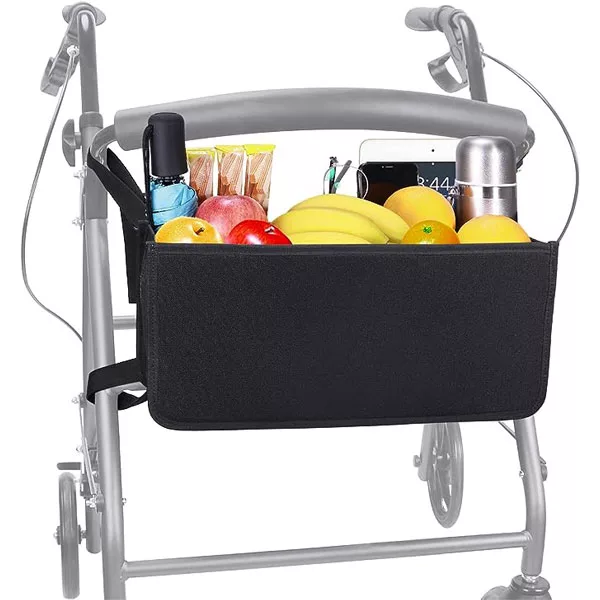Personal Growth Values: Your Compass for a Fulfilling Life
Your guide to using personal growth values as your life compass—practical, relatable, and research-backed.
Ever feel like life’s a maze with no map? Same. I’ve stared at my calendar so long it felt like it was judging me—like, “Really? Another color-coded sprint to nowhere?” That’s where personal growth values come in. Think of them as your trusty compass when everything else is loud, confusing, and oddly sticky. In this guide, I’m breaking down what personal growth values are, why they matter, and how embracing your own can spark real, sustainable growth—personally and professionally. Short version: values are your secret operating system. Update those settings, and suddenly the whole system stops glitching.
Whether you’re just getting into self-development or trying to deepen your self-awareness, understanding your personal core values is non-negotiable. These aren’t aspirational bumper stickers. They’re the guiding principles that quietly shape your decisions, your relationships, and your well-being. So let’s get real about how to define values that actually resonate with your true self—and how to use them to build resilience, maintain healthier relationships, and live a more authentic life. Grab a notebook. I’ll bring the questions; you bring the honesty.

What Are Personal Growth Values—and Why They Matter
Personal growth values are the deeper convictions that fuel your ongoing journey of becoming who you’re meant to be. Not just buzzwords, not fleeting goals, but the moral principles and priorities that quietly steer your choices. They sit under everything: what you say yes to, what you say no to, who you spend time with, how you spend your energy, and whether you feel aligned or constantly off-kilter.
Here’s why you should care: values are stable in a world that won’t stop moving. When your actions line up with your core values, you gain clarity and a kind of quiet confidence that’s hard to fake. Decisions feel lighter. You stop outsourcing your self-worth to other people’s metrics. Personally, I’ve learned (the hard way) that when I choose from values instead of vibes, I sleep better. And I really like sleep.
Quick research moment: psychologists call this values-congruence—when how you act matches what you believe. The cross-cultural work of Shalom H. Schwartz on basic human values has consistently linked value alignment to higher well-being and life satisfaction. Not magic. Just integrity paying dividends.
How Personal Growth Values Form: The Backstory
Where do values come from? A mashup: your upbringing, culture, the people you admire, the mistakes you survived, and those “oh—this matters” moments that land out of nowhere.
Research from the University of Colorado suggests that kids as young as 5–7 show value patterns influenced by family and environment. But values aren’t concrete—they’re clay. You shape them as you grow, learn, and reflect. That’s the best part of personal and professional growth: you get to refine your values as your life expands. Translation: changing your mind isn’t flaky; it’s evidence you’re paying attention.
Tiny story: I used to swear “hustle” was a core value—until I realized I didn’t want a life that required constant recovery. What I actually valued was progress. Different energy. Less burnout. More joy.
Defining Your Own Values: The First Step to Self-Discovery
How do you define values that are truly yours—not the ones you think you “should” have? Start here: think about moments you felt proud or deeply at ease. What values were you honoring? Courage? Kindness? Creativity? Integrity? Curiosity?
Write a core values list of 5–10 words that resonate in your bones. If you’re stuck, try: authenticity, integrity, compassion, resilience, growth, balance, curiosity, bravery, service, and self-compassion.
Now stack-rank them. If everything is a priority, nothing is. Ask: if I could only choose three values to steer me for the next 90 days, what would they be? That constraint forces clarity. Clarity is rocket fuel.
Then make them visible. Define each value in a sentence that you could spot on your calendar:
- Integrity: “I tell the truth even when it’s awkward.”
- Growth: “I ship one imperfect thing every week.”
- Compassion: “I assume good intent and ask one curious question before reacting.”
When your values are behavior-level, they stop being fridge-magnet words and start becoming choices.
Personal Growth Values in Action: Navigating Life’s Challenges
Life is a rollercoaster with a questionable safety bar. Values are the lap belt. When things get messy, your core values act like a north star, turning chaos into choices.
If resilience is one of your values, you’ll treat setbacks like data, not doom. If compassion tops your list, you’ll approach conflict with empathy instead of armor. Clarifying values helps you filter out lesser priorities during adversity. When your day feels crowded, values are how you make space.
Micro-story: I once took on a project that paid well but suffocated my value of creative freedom. Shockingly, I procrastinated like it was my full-time job and produced lukewarm work. The next time a similar offer came in, I said no out loud before my fingers even hit the keyboard. Relief arrived first. That’s the sound of alignment.
Research backs this up. In the Journal of Personality and Social Psychology, studies on values affirmation (writing about your core values) show improved performance and reduced stress in high-pressure contexts. A 10-minute values journaling session can measurably stabilize your sense of self when the stakes climb.
Try this on tough days: write a three-line values reminder. “I choose resilience by taking one uncomfortable action. I choose compassion by asking one clarifying question. I choose focus by protecting one hour from interruptions.” Small. Specific. Doable.
The Role of Self-Awareness and Self-Reflection in Personal Development
Self-awareness is the superpower that unlocks your personal growth values. Journaling, meditation, therapy, long walks with your phone on airplane mode—pick your door into the same room.

This habit helps you catch drift early and realign with what matters. It also reduces internal friction and supports mental health. My own weekly ritual is a Sunday “values check-in.” I ask: Did I live my values this week? Where did I drift? What tiny adjustment would realign me?
Steal this three-step framework:
- Spot: Name one moment you felt off. Which value was compromised?
- Shift: Choose one micro-action that honors that value tomorrow.
- Sustain: Anchor it—“After I make coffee, I’ll do a 5-minute check.” Habit stacking is sneaky and effective.
Confession: I used to wait for motivation. Now I wait for the kettle to boil. Progress.
Building Resilience Through Embracing Values
Resilience isn’t just bouncing back; it’s bouncing forward with purpose. Values are what you bounce toward. When stress or uncertainty hits, your values act like anchors, reminding you what’s worth protecting.
Acceptance and Commitment Therapy (ACT) research shows that values-guided action increases psychological flexibility—a strong predictor of resilience and well-being. In other words, when you’re anchored to a north star, detours don’t feel like dead ends.
A tiny template for hard weeks:
“This week I’ll practice resilience by doing one thing I’m avoiding. I’ll practice compassion by offering one generous assumption. I’ll protect focus by saying no to one ‘urgent’ but non-essential task.”
It’s not heroic. It’s consistent. And consistency compounds.
Personal Growth Values and Professional Lives: Aligning Work with Purpose
Your personal growth values don’t clock out when you clock in. Aligning work with your values is one of the fastest ways to boost job satisfaction and performance.
Whether it’s integrity, creativity, service, or continuous learning, knowing your values helps you set meaningful goals and make decisions that reflect your authentic self. It also strengthens leadership and teamwork by creating shared expectations. People follow clarity.
Quick workplace plays:
- Decision filter: “If it’s not a values-yes, it’s a no-for-now.”
- Meeting mantra: Name a value to guide the room (curiosity, candor). Say it out loud.
- Career map: Pick one value-driven skill to compound this quarter (storytelling for influence, systems thinking for strategy).
A Gallup meta-analysis ties engagement to meaningful work and clear expectations. Translation: when your role lets you live your values, you don’t need motivational posters. Your day does the motivating.
Tiny story: I once added “craft” as a work value and started ending meetings with, “What’s the quality bar?” Shockingly, quality went up. So did morale. Turns out people like knowing what “good” means.
Maintaining Healthy Relationships Through Shared Values
Relationships are wonderful and occasionally exhausting. Shared values act like a secret handshake that creates trust fast. Whether it’s family, friends, or partners, common values reduce friction and deepen connection.
I’ve noticed that when I connect with people who share my core values, conversations flow easier and support shows up faster. The more time you share with someone, the more important it is to share values.
Try this:
- Swap small talk for, “What’s something you care about lately?” Values show up in answers.
- During conflict, name the value you’re protecting: “I’m pressing this deadline because reliability matters to me.” Now it’s not me vs. you; it’s both of us vs. the problem.
Bonus: friendships built on shared values become your portable support system. They help you grow without needing you to be someone else.

The Ongoing Journey: Evolving Your Values for a Fulfilling Life
Personal growth values aren’t a set-and-forget situation. Life changes, and so do you. The goal isn’t perfect consistency—it’s honest recalibration.
Think of it like updating your GPS. Sometimes you keep the destination and change the route. Quarterly, I pick one value to elevate. I’ll give it a theme month: read one book, try one habit, have one conversation, and make one decision that stretches that value. Then I celebrate the reps, not some imaginary finish line.
Permission slip: You’re allowed to evolve. Your values can, too.
Putting It All Together: A Simple Values Playbook
If you like action steps (same), here’s a straightforward playbook to put personal growth values to work:
- Name your top 5 values. Then choose your top 3 for the next 90 days.
- Define the behaviors. Write one sentence that describes what each value looks like on your calendar.
- Build one anchor habit. Tie a 5-minute daily check-in to an existing routine.
- Use values as decision filters. If a choice doesn’t serve your top values, it’s a no or a “not now.”
- Review weekly. Ask: Where did I live my values? Where did I drift? What’s one micro-correction?
It’s simple. And simple is sustainable.
Wrapping It Up: Why Embracing Your Personal Growth Values Matters
Here’s the takeaway: your personal growth values are guiding principles that help you navigate life, build resilience, maintain healthy relationships, and grow in your career.
By defining your values, practicing self-awareness, and making choices aligned with your true self, you set the stage for a fulfilling life filled with meaningful connections and a steadier sense of purpose. This isn’t about perfection; it’s about direction.
If you’re ready to start, grab a notebook, find a cozy spot, and write your five. Circle three for the next 90 days. Then make them visible on your calendar. Your future self will absolutely send you a thank-you note—probably around bedtime, when you fall asleep faster because you chose from values, not vibes.







